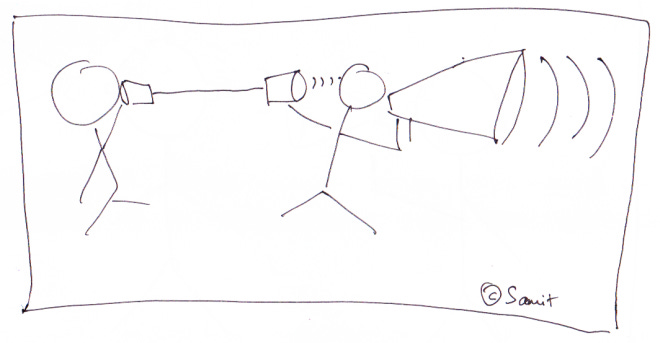Making Influencer Marketing Credible Again

This post is probably going to rake up some controversy, but I'm going to write it anyway.
Over the last year or so, I've been watching social media closely. I've been hearing whispers from agency folk and brand managers. And everything points to one irrefutable fact.
Influencer marketing just isn't as credible as it used to be.
I'll go out on a limb, one step further.
Influencer marketing just isn't credible any more.
And here's why.
One. Brands aren't being discerning enough. Anyone with enough followers or readership qualifies to be an influencer. No matter how tenuous the connection between the influencer and the brand promise.
Two. Influencers aren't being discerning enough. Most influencers today seem to be happy to work with any brand that is willing to work with them (read: pay them well). Rather than the brands they really love. The faked enthusiasm shows in every overexcited tweet, in every hard-selling blog post.
Three, following on from my previous statement. People today are becoming more and more aware that people who randomly start promoting a brand are being paid to do so.
Having been one of the earliest exponents - and practitioners - of social influence marketing in India, I can't help but wonder - whatever happened to the influencer marketing we used to know and love?
For those who came in late, here's how it's supposed to work.
Brand identifies potential influencers. These are usually people who are perceived experts in a particular field (related to the brand's sphere of operation), or die-hard brand fans.
Brand contacts influencer. Influencer agrees that the brand is a great fit for them.
Brand and influencer work together to co-create content.
It's a win for both, the brand and the influencer. In the truest form of influencer marketing, there is no money exchanged. The brand gains credibility. The influencer gains readership/following/indirect revenue through their association with the brand and wider exposure. And/or merchandise and/or products and/or an exclusive experience.
So here are a few thoughts on how to make it better again. Very simply, going back to the basics.
Brand Managers, be picky about the influencers you work with. Frankly, there's a limited pool. And every social media agency has pretty much the same list. Look for a few really good and relevant influencers, rather than a wide pool of irrelevant (to your category) influencers. Or work even harder, and discover someone who could become an influencer through your campaign. Your campaign will look and feel more authentic. And you'll save a few bucks too.
Brand Managers, avoid your instinct to hard-sell. The more sell-y the content you co-create, the more people will avoid it. Don't be lazy. Find a way to subtly weave your brand promise into your influencer's natural content. It's a brand-building exercise, not a sales one.
Influencers, stay true to yourselves. If music is your passion (and the reason people follow you), you have no business working on a food brand. And if you love rock music, don't pick up a campaign related to Bollywood pop. If you're an iPhone fan, don't work with an Android OEM. If you're a jeans-and-tees person, avoid the business/formal clothing brands.
Influencers, don't do every campaign you get. I've seen people tweet for OLX one day and Quikr the next. The agreement you sign with a client may not be exclusive. But being loyal to the brands you actually respect or use will win you more credibility with your audience. It'll also keep your client loyal to you. Money is always tempting. But eventually, you'll end up diluting your brand equity. And your follower count.
Influencers, be transparent about your engagement with the brand. There's no need to pretend that you wrote a post out of sheer love. Talk about how you're engaging with the brand. It's also ok to tell the world that they paid for your trip, or paid you to write the post, and leave it to your followers to judge for bias. It'll just help you build further credibility.
As usual, I'd love to know what you think. Do leave your thoughts and opinions in the comments.
Footnote: I want to touch upon the issue of brands paying an influencer. I personally believe that paying an influencer to engage is antithetical to the concept of influencer marketing. It's no different from hiring a celeb to endorse your brand. I do also believe that influencers work hard to create content and build a deeply engaged following, and deserve to be rewarded for the work they do. It's a grey area; so in the end, you should just do what seems ethical to you.



